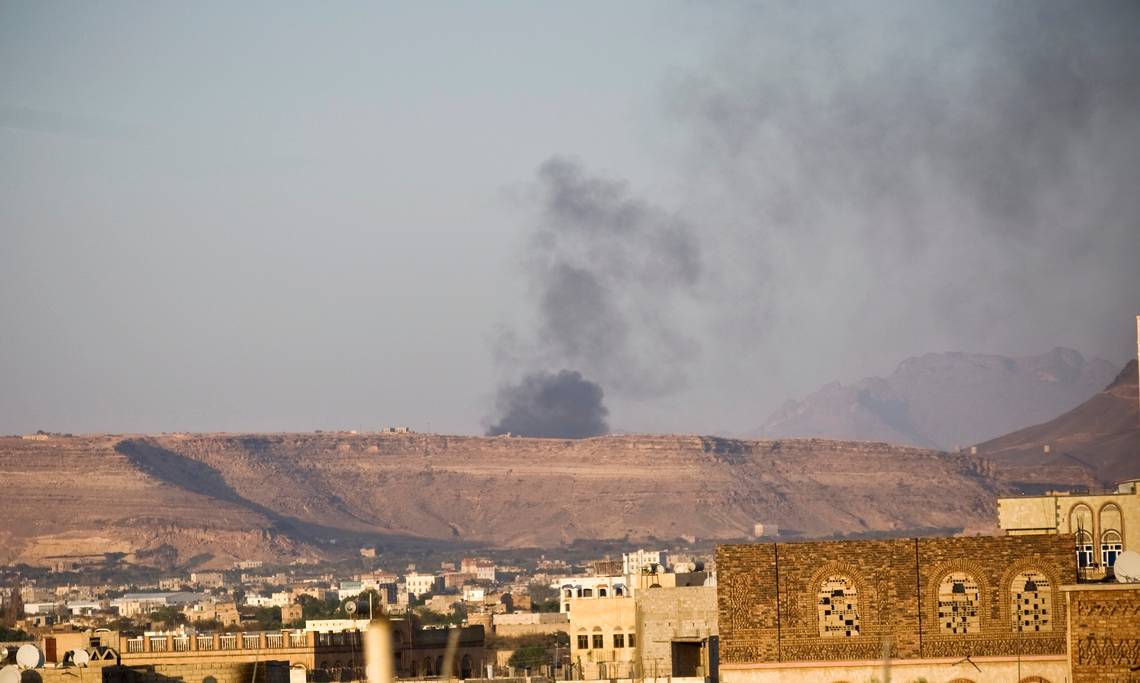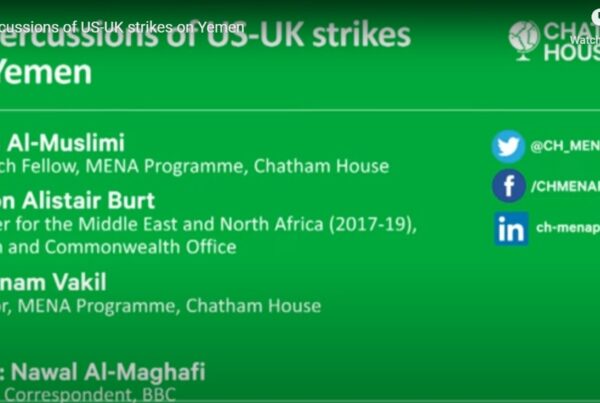With Saudi Arabia’s bombing campaign in its third day, the United Nations on Saturday evacuated its remaining personnel from Yemen’s capital, dashing whatever hopes remained that the fighting would be suspended and U.N.-sponsored peace talks resumed.
Altogether 140 people left in three planes bound for Addis Ababa, Ethiopia, ending the high-level U.N. presence in Sanaa. There also were sea evacuations of foreign personnel from the ports of al Hodeidah and from Aden, U.N. sources said.
Just after midnight, Jamal Benomar, the Moroccan who is the U.N.’s special envoy to Yemen, made one last effort to broker a settlement, contacting the parties to Yemen’s fighting and inviting them to join him on his flight out. All agreed – except the Iranian-backed Houthi rebels, whose capture of Sanaa and march toward Aden had alarmed the Saudis.
The Houthis deliberated all night, then rejected the invitation Saturday morning. Benomar, who’d taken up his post in August 2012, departed Sanaa in mid-afternoon, leaving many Sanaa residents with a feeling of abandonment.
The Saudi air attacks early Saturday were the most intense since the air campaign, “Operation Decisive Storm,” began Thursday. There were reports of large scale deaths among Houthi rebels and civilians, and residents described the bombing as the most terrifying night so far.
Schools, universities, shops, works, parks, and most public services in the capital have shut down.
A Saudi airstrike against a Houthi-occupied military base in the Al Kamb area of the northern Yemeni province of Sadah killed more than 100 soldiers, but caused at least a dozen casualties, some fatal, among a group of internally displaced civilians who were trying to reach a nearby refugee camp, local humanitarian aid groups said.
A second strike in the town of Khamis Menbah, also in Sadah, the heartland of the Houthi movement, killed at least a dozen civilians, including three children, according to locals and humanitarian aid groups working in the area.
Air strikes also targeted military bases loyal to former president Ali Abdullah Saleh, who was removed from power after an Arab Spring-inspired uprising in 2011, and a number of strongholds of the Houthis.
Residents of Aden said there were enormous explosions in the Hadeed Mountain military zone and clashes around the airport, which has been the scene of a battle for control between supporters of the Houthis and Saleh forces and fighters allied to president Hadi.
According to head of the Aden health department, more than 61 have been killed and more than 500 injured in clashes there in recent days.
Intense clashes also continued in Lahj province between Houthi forces and military units loyal to the country’s internationally recongized president, Abed Rabbo Mansour Hadi. On Friday, Saudi air strikes targeted Al-Anad air force base, once a key headquarters for U.S. military operations in Yemen but now controlled by the Houthis. U.S. troops evacuated the base last week.
As the country headed into more chaos, Hadi appeared at the Arab League summit in Sharm al Sheikh, Egypt, to call for the Saudi intervention to continue. His remarks upset many Yemenis at home who say the campaign is taking a high civilian toll.
Hours later, former president Saleh appeared on his own television channel and for the second time in as many days, called on Saudi Arabia and its allies halt the bombing campaign.
Saleh, who’s fought several wars against the Houthis but is now aligned with them, asked the Arab leaders to stop gambling on a “failed horse,” referring to Hadi, and to adopt a plan for early elections.
Saleh even pledged that neither he nor any of his relatives would run for president. But as the man who served as president of Yemen for more than two decades and previously as president of north Yemen, his pledge met with wide skepticism in Sanaa.








